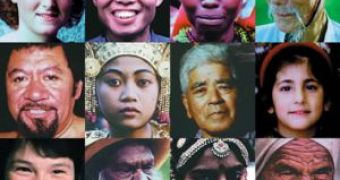The Human Genome Project found all humans to have a 99.9 % similar genetic content and identity, but this is challenged by a new more detailed research suggesting a higher genetic diversity, with further medical and evolutionary implications.
Previous studies focused on analyzing polymorphism (variation) in DNA nucleotidic bases. But the new approach tackled deletions or duplications of code among relatively long sequences of individual DNA and then compared the so-called copy number variations (CNVs) across individuals from different human breeds. This method uncovered a complex, higher-order variation in the code and better explains why some populations or races are vulnerable to certain diseases and respond well to specific drugs, while counterparts swiftly fall sick or never respond to treatment.
Two technical breakthroughs, a faster, accurate sequencing of DNA and a powerful software programme to spot the CNVs allowed the new approach. 1,447 CNVs were located in roughly 2,900 genes, which means around 12 % of the human DNA. "Each one of us has a unique pattern of gains and losses of complete sections of DNA," said Matthew Hurles from Britain's Wellcome Trust Sanger Institute. "One of the real surprises of these results was just how much of our DNA varies in copy number. We estimate this to be at least 12 % of the genome."
"The copy number variation that researchers had seen before was simply the tip of the iceberg, while the bulk lay submerged, undetected. We now appreciate the immense contribution of this phenomenon to genetic differences between individuals."
Some missing or duplicated DNA fragments are very large, thus CNVs might have a big impact on gene expression. About 16 % of genes related to disease have been found to possess CNVs, like those involved in the rare DiGeorge, Williams-Beuren and Prader-Willi syndromes or more common schizophrenia, cataracts, spinal muscular atrophy and atherosclerosis. But kidney disease, Parkinson's, Alzheimer's and vulnerability to malaria and the human immunodeficiency virus (HIV), which recent research has blamed on single-letter variations in the gene code, are also suspected for CNVs. "The stage is set for global studies to explore anew... the clinical significance of human variation," said Huntington Willard at Duke University in North Carolina.
The new data also shows that our species is so recent that the vast majority of CNVs, around 89 %, was found to be shared among the 269 people belonging to Mongoloid Race (Japanese and Chinese), African Negroid (Yoruba Nigerians) and Caucasoid (of Northern and Western European ancestry). But there are also widespread specific differences in CNVs according to the race and even inside the same race according to population (geographical origin). This means that over 200,000 years or so, natural selection favored subtle variants allowing different humans populations to adapt to their different environments, with specific climate, pathogens, and food resources.

 14 DAY TRIAL //
14 DAY TRIAL //